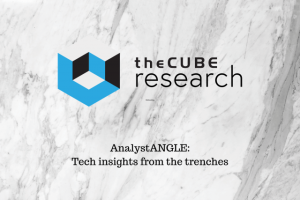.local – a Scaled Down but Intimate Event
MongoDB, a leading data management company, recently held its user conference in New York City, where it made several significant announcements. This one-day event showcased MongoDB’s commitment to innovation and highlighted its strategic focus areas for driving growth and capturing a larger share of the data management market. This post consolidates our thoughts and provides an overview of MongoDB’s key announcements and the outlook for the company.
Platform Enhancements
During the event, MongoDB unveiled a new vector search capability, designed to support generative AI workloads. This addition is expected to enhance MongoDB’s platform and enable it to cater to a broader range of data management needs. The company also introduced Atlas search and stream processing capabilities, further expanding the functionality of its database platform. These enhancements have the potential to significantly increase MongoDB’s total addressable market (TAM) and were well-received by attendees, providing a tailwind to the company’s outlook.
Specific Product Announcements
MongoDB made several noteworthy product announcements during the event. These included:
Atlas Vector Search: The introduction of Atlas Vector Search enables MongoDB to function as an alternative to standalone vector databases. This capability simplifies the integration of generative AI and semantic search with applications, which is crucial for developers working on AI-based projects.
Atlas Stream Processing: MongoDB surprised many attendees with the announcement of Atlas Stream Processing, a feature designed for continuous processing of event streams. This functionality allows customers to process and transform data from platforms like Kafka, AWS Kinesis, and Azure Event Hub, empowering the creation of event-driven applications.
Other Enhancements: MongoDB also unveiled additional enhancements such as the general availability of Relational Migrator, a previously announced tool to migrate relational data to MongoDB. As well, the company announced dedicated Atlas search nodes, expanded time series functionality, and enhanced multi-cloud support. MongoDB stressed that it is the only data platform that can be invoked directly from the console of all three major U.S.-based hyperscale cloud providers.
These additions further solidify MongoDB’s position as a comprehensive developer data platform.
Strategic Focus
There is general optimism regarding MongoDB’s strategic focus areas, which aim to grow the number of customers and workloads within each customer account. The four key areas of focus are:
- Migrating more workloads: MongoDB aims to facilitate the migration of workloads to its platform through application modernization. By providing a robust and flexible solution, the company expects to attract a larger share of the overall database market.
- Supporting diverse workload types: MongoDB’s platform is evolving to support a wider range of workload types and application architectures. This adaptability positions the company to capture a growing share of the data management market as use cases continue to evolve.
- Embracing Generative AI: MongoDB highlighted the rise of Generative AI as a significant tailwind for new application development. By leveraging this technology, MongoDB aims to increase developer productivity and attract new workloads in the future.
- Expanding customer base: MongoDB aims to support a greater number of customers by providing superior data management solutions. By focusing on quality clients and maintaining a strong quantity of workloads, the company is well-positioned for growth acceleration as the macro environment improves.
Positive Outlook
Attendees at the event expressed their enthusiastic outlook for MongoDB. They believe that the company’s platform enhancements, along with its strategic focus on customer-centric growth, will enable it to capture a larger share of the data management market. The expanding use cases, coupled with the increasing preference for general-purpose databases, bode well for MongoDB’s long-term growth prospects. Furthermore, the company’s proactive approach to emerging trends, such as Generative AI, instills confidence in its ability to capitalize on future opportunities.
Conclusion
MongoDB’s recent user conference showcased the company’s commitment to innovation and its strategic focus on customer-centric growth. The introduction of Vector Search, Atlas search and stream processing capabilities, and the emphasis on Generative AI highlight MongoDB’s efforts to expand its platform and capture a larger share of the data management market. Mongo’s investments to bring enterprise class capabilities to its developer-friendly platform reinforces the company’s potential for long-term growth and positions it as a leading player in the evolving landscape of data management.
Watch this video of MongoDB CEO Dev Ittycheria with SiliconANGLE analyst John Furrier on theCUBE:
Image: Araki Illustrations

